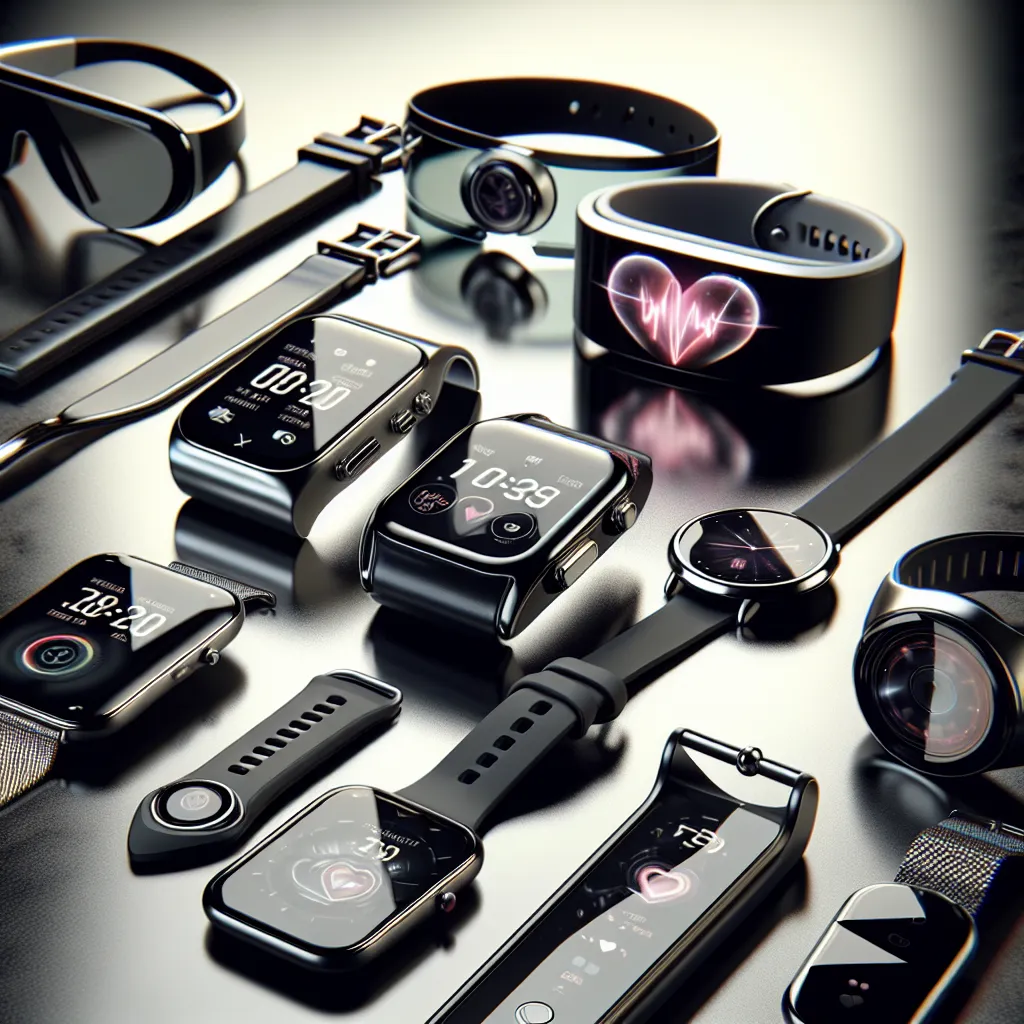Wearable technology is a rapidly evolving field that has become increasingly relevant in our daily lives and, consequently, in English language exams like IELTS. This article will guide you through the essential vocabulary related to wearable technology, helping you understand, remember, and effectively use these terms in your IELTS preparation and exam.
Understanding ‘Wearable Technology’
Wearable technology (noun) /ˈweərəbəl tekˈnɒlədʒi/: Electronic devices or computers that can be worn on the body, either as accessories or as part of clothing.

Context and Usage
-
“The latest wearable technology includes smart glasses that can display augmented reality information.”
- This sentence introduces a specific type of wearable technology, highlighting its advanced capabilities.
-
“Many athletes use wearable technology to monitor their performance and health metrics during training.”
- Here, we see the practical application of wearable tech in sports and fitness.
-
“The healthcare industry is increasingly adopting wearable technology to improve patient monitoring and care.”
- This example showcases the use of wearable tech in a professional, medical context.
-
“As wearable technology becomes more sophisticated, privacy concerns are growing among consumers.”
- This sentence touches on a societal issue related to the advancement of wearable tech.
-
“The integration of wearable technology into everyday clothing is the next frontier for tech companies.”
- This example points to future developments in the field.
In IELTS, you’re likely to encounter ‘wearable technology’ in Reading and Listening sections, especially in passages about technology trends or health innovations. It may also be a relevant topic for Writing Task 2 or Speaking Part 3, where you might be asked to discuss technological advancements.
Expanding Your Vocabulary
Related Terms and Phrases
-
Smart wearables (noun): Sophisticated electronic devices designed to be worn on the body.
- “Smart wearables like fitness trackers have revolutionized personal health monitoring.”
-
Fitness tracker (noun): A wearable device that monitors physical activity and health metrics.
- “She uses a fitness tracker to count her daily steps and monitor her sleep patterns.”
-
Smartwatch (noun): A wearable computer in the form of a wristwatch.
- “His smartwatch allows him to receive notifications and make calls without taking out his phone.”
-
Augmented reality (AR) glasses (noun): Wearable devices that overlay digital information on the user’s real-world view.
- “Augmented reality glasses are being used in industries like manufacturing to provide workers with real-time information.”
-
Biometric sensors (noun): Devices in wearable technology that measure biological characteristics.
- “Advanced biometric sensors in wearables can now detect early signs of health issues.”
Synonyms and Antonyms
Synonyms for ‘wearable technology’:
- Smart wearables /smɑːrt ˈweərəbəlz/
- Wearable devices /ˈweərəbəl dɪˈvaɪsɪz/
- Body-borne computers /ˈbɒdi bɔːn kəmˈpjuːtərz/
Antonyms or contrasting terms:
- Traditional technology /trəˈdɪʃənl tekˈnɒlədʒi/
- Stationary devices /ˈsteɪʃənri dɪˈvaɪsɪz/
- Non-portable electronics /nɒn-ˈpɔːtəbəl ɪlekˈtrɒnɪks/
Memorization Techniques
Mind Mapping
Create a mind map with ‘Wearable Technology’ at the center, branching out to different types (smartwatches, fitness trackers, AR glasses), applications (health monitoring, communication, navigation), and related concepts (IoT, big data, privacy).
Storytelling Technique
Imagine a day in the life of someone using various wearable technologies:
“Sarah wakes up, checking her sleep quality on her smartwatch. She goes for a run, her fitness tracker monitoring her heart rate and distance. At work, she uses AR glasses for a virtual meeting. Throughout the day, her smart clothing regulates her body temperature.”
Practical Application for IELTS
Writing Task 2 Example
Question: “Some people believe that wearable technology will greatly improve our lives, while others are concerned about privacy issues. Discuss both views and give your opinion.”
In your response, use relevant vocabulary:
- “Proponents of wearable technology argue that devices like fitness trackers and smartwatches can significantly enhance personal health monitoring…”
- “On the other hand, critics are concerned about the privacy implications of constant data collection by wearable devices with biometric sensors…”
- “While the benefits of smart wearables in healthcare and fitness are undeniable, I believe strict regulations are necessary to protect user privacy…”
Speaking Part 3 Practice
Question: “How do you think wearable technology will change the way we live in the future?”
Possible answer: “I believe wearable technology will revolutionize various aspects of our lives. For instance, advanced smartwatches and health monitors could provide early detection of medical issues, potentially saving lives. In education, AR glasses could offer immersive learning experiences. However, we’ll need to address privacy concerns as these smart wearables collect more personal data.”
Conclusion
Mastering the vocabulary related to wearable technology is crucial for success in IELTS, especially given the topic’s relevance in today’s tech-driven world. By understanding and practicing these terms in context, you’ll be well-prepared to discuss this subject in all sections of the IELTS exam.
Remember to use these words in your own sentences and try incorporating them into your daily English practice. If you have any questions about using this vocabulary or want to share your own examples, please leave a comment below!